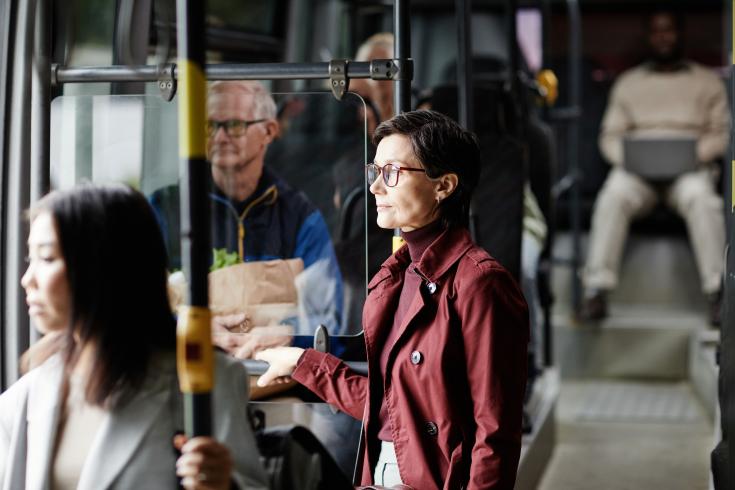Management of ebusses: key learnings

On 9 November the Policy Learning Platform organised an online matchmaking for the North-West Regional Development Agency in Romania. The topic of the session was about measures to improve the management of the fleet of ebuses for public transport operators.
The key learnings and additional information can be found in the matchmaking report.
Peers from across Europe
Alongside Katharina Krell, our Thematic Expert for low-carbon economy, brilliant peers from the Interreg Europe project eBussed were invited and participated to the mtchmaking:
- Aleksi Heinonen from Turku University of Applied Sciences (Finland), coordinator of eBussed.
- Reinoud Dirkesen from Utrecht Province Public Transport Expertise Team (The Netherlands).
- Stephanie Kessler from the Free and Hanseatic City of Hamburg (Germany).
Matchmaking objectives
The North-West Regional Development Agency had requested a matchmaking to learn from Interreg Europe peers what cities and public transport operators can and should do to preapre optimally for the introduction of electric buses in their fleet and which are good practices for operations management once they are procured.
Many cities in the North-West region of Romania have procured e-buses with regional funds in the past programming periods. Now the public transport operators must get acquainted with the new vehicles and learn how to handle them best.
Takeaways
E-bus operations
- To ensure a smooth operation of the newly procured e-buses, all drivers and other support staff should get adequate and timely training. It is better to train all drivers instead of only a few designated. The training should be specific to the procured model and can be given by an external service provider, such as the local technical university, as done in Turku, Finland.
- Owning and operating a larger e-bus fleet has IT and data implications that must not be underestimated. Procurement must include data access or disclosure clauses that the OEM must comply with for such data as later needed in the operational phase.
- E-buses require temperature conditioning prior to start. Such pre-heating should to automatically programme in order to save driver time.
- E-buses are much more inflammable than ordinary buses. Depot design should take this higher risk into account and separate e-buses from diesel buses, provide for special fire extinction systems for the ebus section and consider including concrete walls between department to shield off parts of the depot from others.
- Exchange of experience amongst PT operators is helpful to allow a group to learn together and form each other as a new technology is introduced and everybody gains experience. The national platform Initiative Elektrobus has been established to work cooperatively towards standards and technological readiness in e-bus technology
- Many parties must be involved in the transition, none should be forgotten, it’s a holistic effort.
E-bus procurement
- A test-phase should be included in the contract that stipulates that e-buses must drive a certain distance (e.g. 2000km in Hamburg) without zero faults or show a certain minimum availability for a specified time before procurement is formally completed. If the fault is fixed by the OEM or the operator, the counter towards the 2000km starts anew. Faulty e-buses can thus be returned to the manufacturer in case of fundamental problems that cannot be fixed.
- The procurement contract should contain a clause that obliges the tenderer to provide data and training material for smooth operation of the buses after procurement. Ideally, the contract should contain the obligation for the tenderer to train trainers.
- Procurement is easier when city administrations can instruct their publicly-owned transport companies to carry it out as these companies’ margin of manoeuvre is bigger than that of city procurement departments.
Explore all the key takeaways and the peers' recommendations in the matchmaking report.
Some key practices identified
- eBussed: Training for whole staff when e-buses were first introduced in the region
- eBussed: Optimising charging infrastructure according to available space
- eBussed: Conditional delivery of e-buses, including a practical test phase
- eBussed: National E-Bus Platform
- eBussed: Marketing and communication activities related to the introduction of e-buses
Several more relevant good practices on can also be found on the Interreg Europe eBussed web pages.